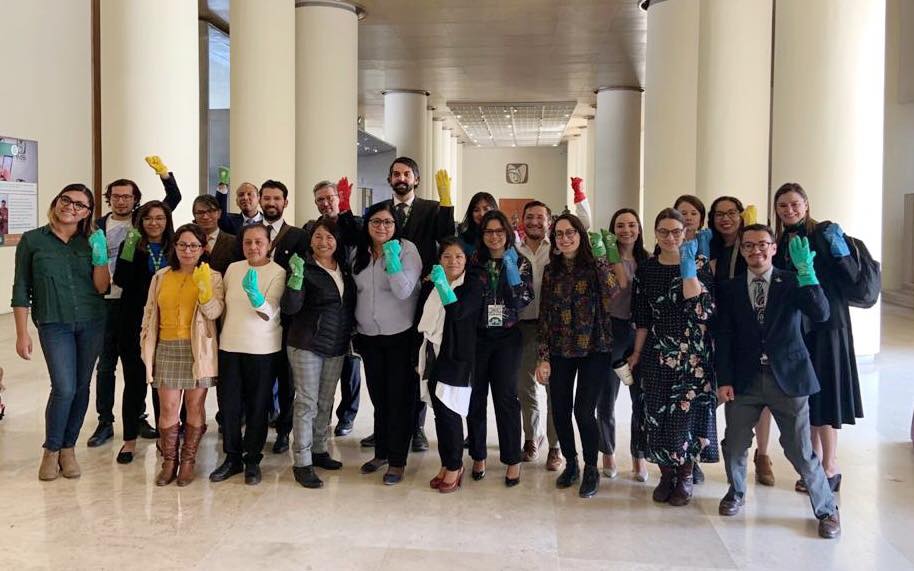This article was published more than 4 years ago.
In May of 2019, Mexico’s government passed ILO Convention 189, landmark legislation that granted roughly 2 million domestic workers basic rights like work hour limits and paid leave. Due, in great part, by the dedicated work of a Fund-backed organization, this victory marked a massive step in the struggle for social and economic recognition of domestic work in the country.
Domestic workers in Mexico are responsible for taking care of houses and their duties may range from cooking to gardening to babysitting to cleaning. They often are forced to submit to poor work conditions, extremely low pay, and psychological abuse. Around 90 percent of domestic workers in Mexico are women. Most come from low-income families and often start this work as children to support their families and themselves. However, due to the high demands of the job, many of these girls and young women are unable to continue with their education, and therefore have more difficulty finding better work. This lack of opportunity only emphasizes the power imbalance between domestic workers and the families they serve, as there is often nowhere else for them to go if they receive poor treatment.
This bill establishes standards for the treatment of domestic workers, giving them legal power and dignity in their work.

The Fund-supported Centro de Apoyo para Empleadas del Hogar (CACEH) was instrumental in passing this legislation. CACEH was founded by Marcelina Bautista, a domestic worker for two decades who began working at age 10. The organization helps to educate domestic workers about their rights through workshops and trainings, advocate for legal and legislative protections for domestic workers, and change the public’s perception of domestic work through education campaigns. In 2015, it created Mexico’s first domestic workers union. With the Fund’s support, CACEH has deepened their engagement within specific communities and enhanced their trainings, resulting in an overall growth in their operations and reach.
CACEH and the campaign for increased government recognition of workers’ rights gained further recognition due to their involvement in the 2018 Oscar-award winning film Roma. The film shares the lives of two domestic workers in Mexico and helped create a global discussion about domestic worker protection that spurred further pressure to pass this legislation. CACEH helped to bring real-life perspectives from domestic workers to the makers of the film and, in turn, many of the actors in Roma appeared in CACEH’s public campaigns and its director Alfonzo Cuaron lent his public support, furthering their message.
While the law’s passage is a landmark for domestic workers in Mexico, it also fosters a new awareness of their work, the issues of class and inequality at play, and the abuse that many have endured. “It means recognition of their work, it means paying off the historical debt… it means creating awareness about the obligation to formalize work at home by employers.” says Marcelina.

CACEH continues working to monitor the legislation’s implementation. As part of this work, in September 2020, CACEH released a mobile app called DIGNAS to help domestic workers access the information they need to realize the tangible improvements promised by ILO 189 in their daily lives, including tracking back pay, vacation days or other benefits owed and connect with legal resources.
Around 60 percent of Mexico’s population rely on informal jobs like domestic work, and without the mobilization of workers by groups like CACEH, it would otherwise be easy for employers to ignore the legislation. With the Fund’s support, CACEH continues to be vigilant in addressing this issue, working with fellow labor rights groups in pushing for further legislation to protect domestic workers, and fostering a respectful and supportive environment for future workers.
Says Marcelina, “The Fund was one of the first donors that believed in us and our work… it is a constant, stable, and flexible support for our projects that has served for political advocacy, the training of promoters of labor human rights of domestic workers that laid the foundations to start the organizational work of women workers in the States of Mexico.”
This blog was written by Preeya Patel, an intern at the Fund for Global Human Rights and a student at the University of Chicago studying public policy.


